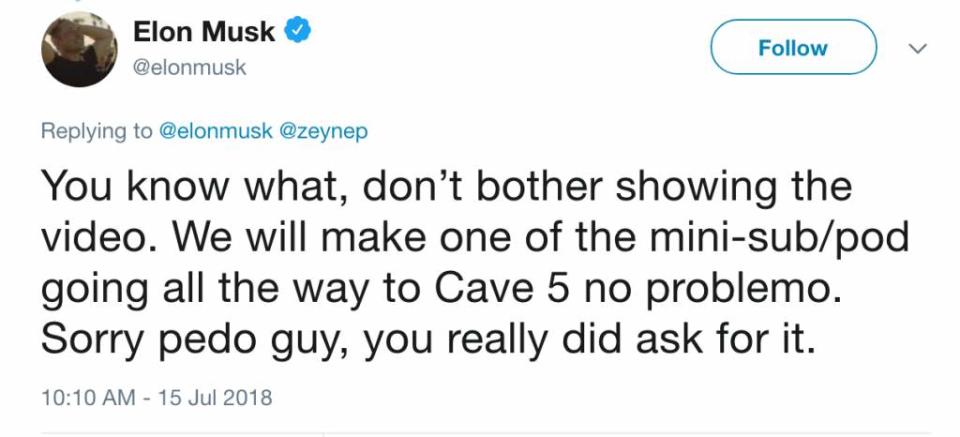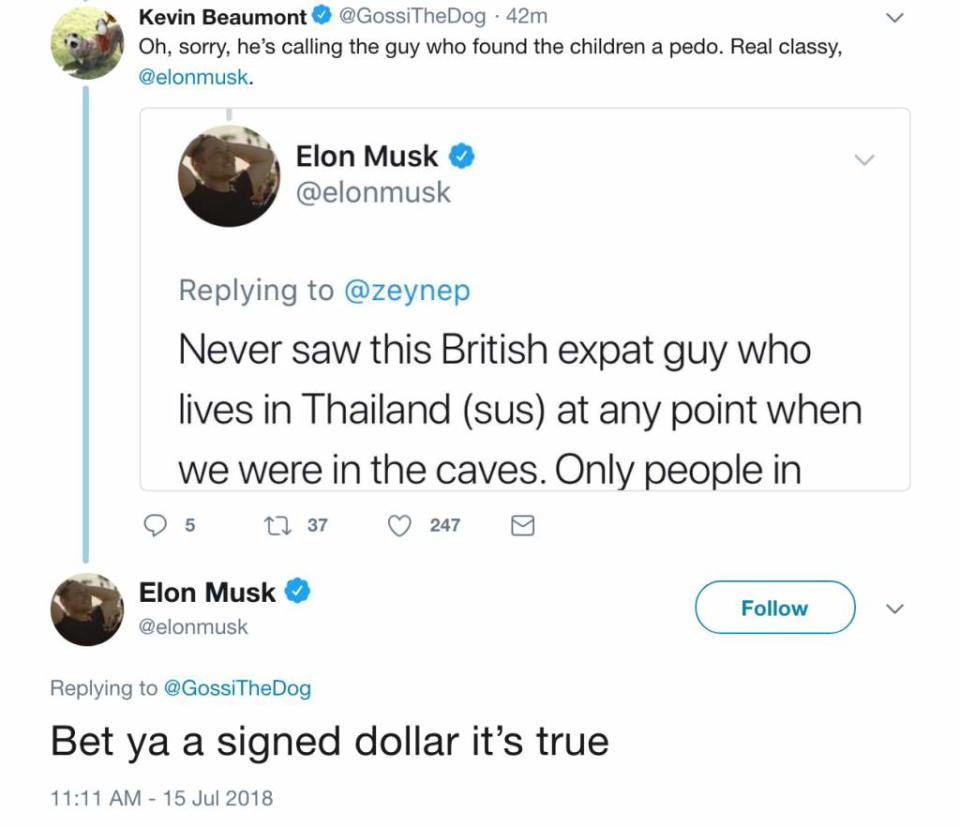UK diver called 'pedo' by Musk could have a strong defamation case
Billionaire tech pioneer Elon Musk made the news this week when he called a British diver a “pedo.” The diver suggested that he might sue — and if he does, he has a strong case, according to two legal experts.
UPDATE: On Tuesday, the diver told Reuters: “I’ve been approached by British lawyers, American lawyers. I haven’t decided what to do next yet.”
Diver Vern Unsworth, who contributed to the dramatic rescue of 12 young boys and their coach from a Thai cave, criticized Musk’s self-promoted idea for creating a mini-submarine to help the cause. On Sunday Musk, CEO of Tesla, SpaceX, and Neuralink, wrote the following tweet:

While Unsworth didn’t specify whether he wanted to sue in the U.S. or U.K., he could have a case in either country, according to two lawyers who specialize in defamation.
‘His attacks on the diver would go far and wide’
To win a defamation lawsuit in the U.S., a plaintiff has to show that a defendant published a false statement that harmed them. The plaintiff also has to show that the defendant either acted negligently or with “actual malice” — meaning they either knew the statement was false or acted with “reckless disregard for the truth.”
“Elon Musk is very wealthy, and also has a tremendous amount of social influence,” said Kenton Hutcherson, a partner at Dallas-based Hutcherson Law, which specializes in internet law including internet defamation.
“His attacks on the diver would go far and wide. It’s not like the diver can necessarily counteract the defamatory statements.”
“Calling someone a pedophile is considered defamation per se,” he added, referring to a statement that is defamatory on its face. “The court is going to assume that it is going to cause the plaintiff personal injury. It suggests sexual impropriety.”
Hutcherson noted that defamation law varies by state in the U.S. “But typically, the states are fairly uniform regarding defamation law. If he were to sue in the United States, he would have a case — under any state’s law, provided he can establish jurisdiction,” he said.
In this case, Unsworth may decide to sue Musk in his home state of California.

Elon Musk listens at a press conference following the first launch of a SpaceX Falcon Heavy rocket at the Kennedy Space Center in Cape Canaveral, Florida, U.S., February 6, 2018. REUTERS/Joe Skipper
‘An extremely serious allegation’
Unsworth would also likely have a strong case in the U.K., which has notoriously strict laws related to libel, a type of defamation that consists of a published statement. In the U.S., a person suing for libel bears the burden of proof. But in the U.K., a defendant has to prove their statement is not libelous.
Some plaintiffs have gone out of their way to sue in the libel-friendly U.K. courts, including Russian oligarch Boris Berezovsky, who sued U.S. magazine Forbes in Britain.
U.K. lawyer Megan O’Boyle at Taylor Hampton also agrees that the diver would have a case in the U.K.: “Referring to an individual as a ‘pedo’ is an extremely serious allegation which is highly defamatory and would almost certainly cross the threshold in terms of causing serious harm to one’s reputation, a prerequisite for bringing a libel action in English law.”
Hence, in the Musk case, “if the diver’s reputation has been seriously harmed here in England, he can sue,” said O’Boyle.
‘Doesn’t erase the fact that he made the defamatory statement’
When Musk was called out on the accusation, he initially defended his own statement (before deleting the offending tweet).

Deleting the tweet doesn’t exonerate Musk, adds Hutcherson.
“It stops the ongoing damage — but it doesn’t erase the fact that he made the defamatory statement to begin with,” he said.
Yahoo Finance reached out to Tesla’s media team for comment and did not receive an immediate response.
Follow Aarthi on Twitter.
Read more:
